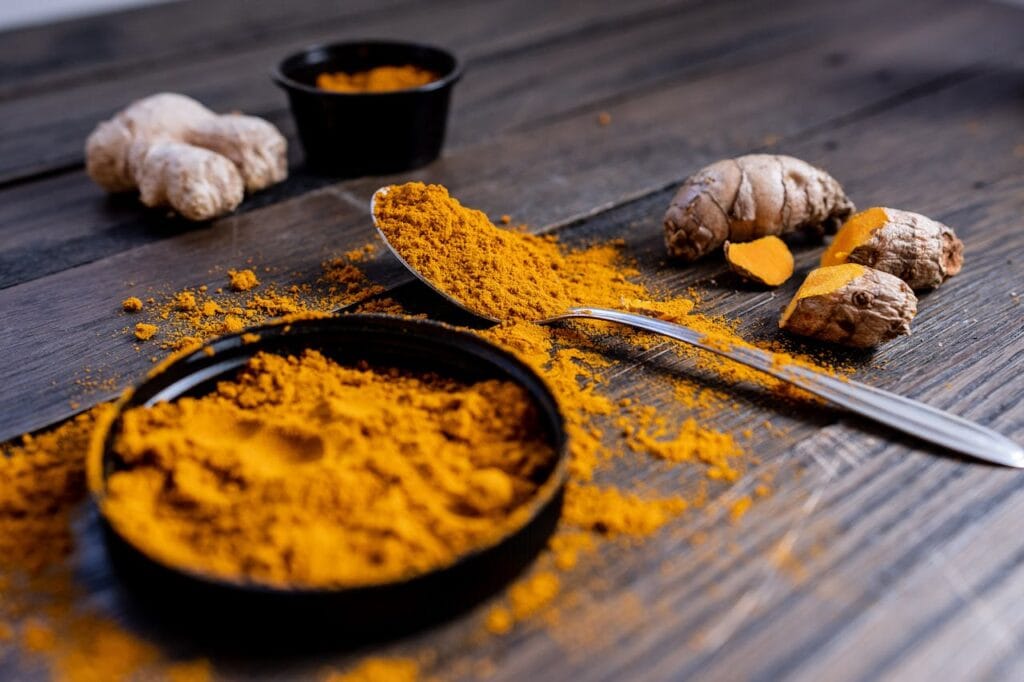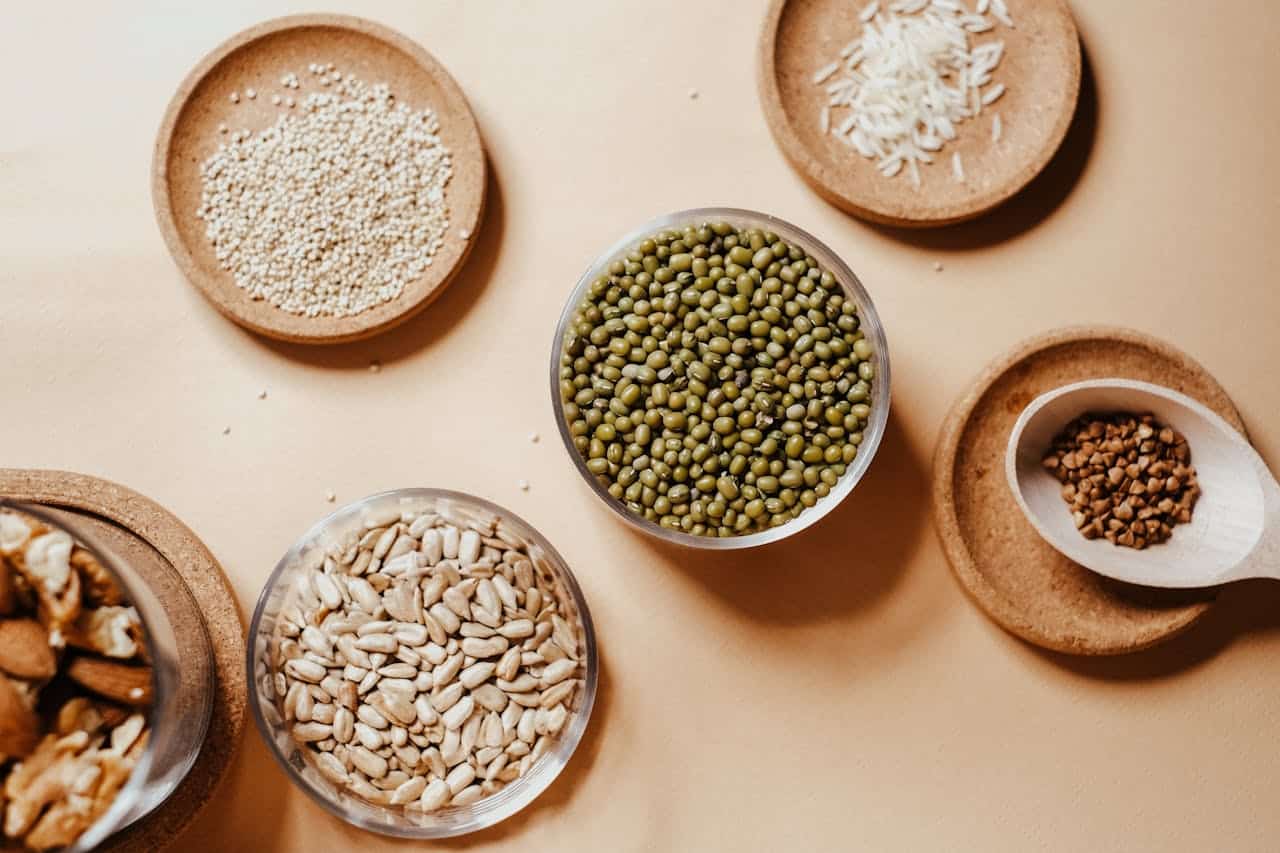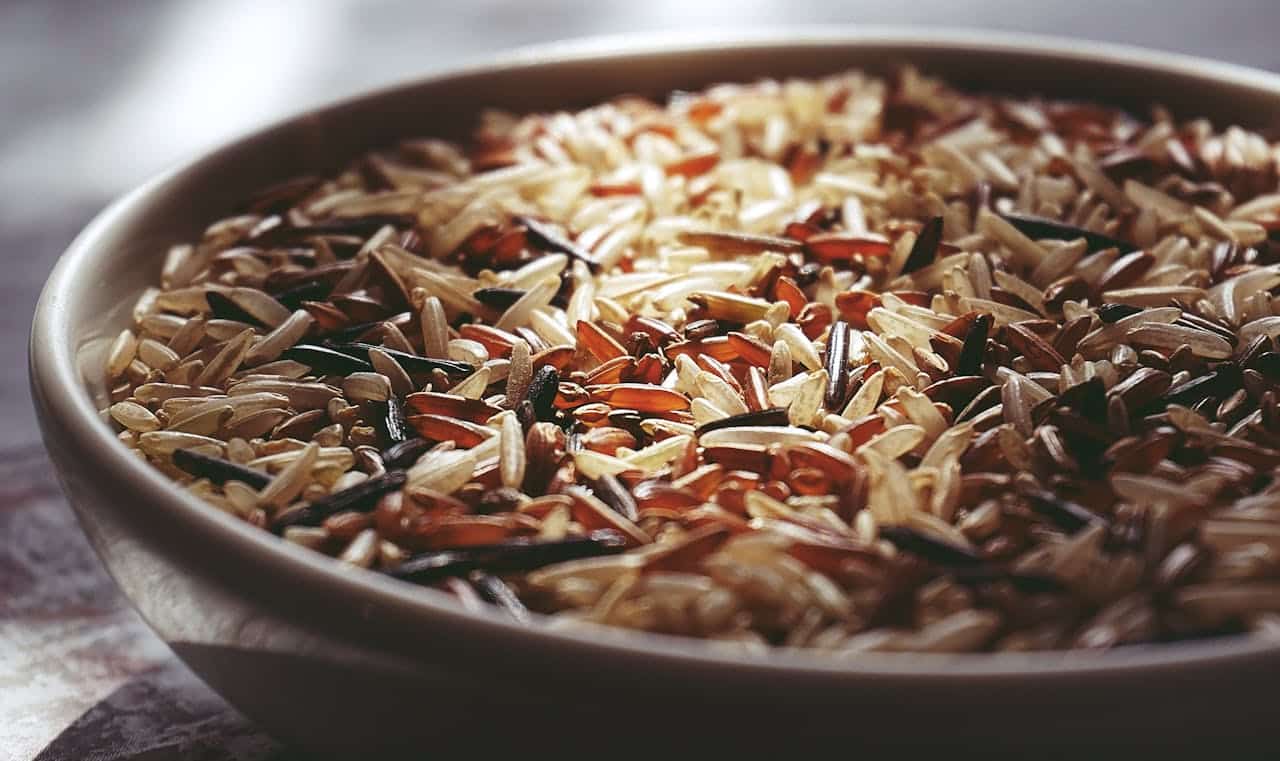What is Turmeric?
Turmeric is a vibrant yellow-colored spice which is derived from the root of the Curcuma longa plant. Turmeric has been used for centuries in Indian Ayurveda and traditional Chinese medicine. The magic behind turmeric lies in its active compound called Curcumin.

What is Curcumin?
Curcumin is the primary active compound found in turmeric. It’s responsible for turmeric’s distinctive color and many of its potential health benefits.
Potential Health Benefits of Turmeric
- Anti-inflammatory Properties: Turmeric can fight with inflammation. Some studies suggest that curcumin can effectively reduce inflammation associated with various conditions, such as arthritis, inflammatory bowel disease (IBD), and asthma.
- Antioxidant Power: Curcumin acts as a potent antioxidant that helps to neutralize harmful free radicals in the body. The free radicals contribute to cellular damage and the aging process.
- Potential for Chronic Disease Prevention: Turmeric has been linked to a reduced risk of chronic diseases due to its anti-inflammatory and antioxidant properties. Chronic Diseases such as heart disease, cancer, and Alzheimer’s disease.
- Digestive Health: Turmeric has been used traditionally for digestive health. Turmeric helps to improve digestion, reduce bloating, and alleviate symptoms of irritable bowel syndrome (IBS).
- Liver Protection: Turmeric helps to protect the liver from damage caused by toxins and oxidative stress. (according to some recent studies)
- Pain Relief: Turmeric has been used as a natural pain relief for centuries. Its anti-inflammatory properties help in pain reduction.
- Brain Health: Curcumin which is present in Turmeric may have neuroprotective effects, potentially benefiting conditions like Alzheimer’s and Parkinson’s disease.
Incorporating Turmeric into Your Diet
There are several ways to incorporate Turmeric into your Diet:
- Spice Up Your Dishes: Add turmeric to your food, curries, soups, stews, and rice dishes for a flavorful and healthy boost.
- Golden Milk: This traditionally most popular beverage combines turmeric with warm milk, honey, and spices for a comforting and immune-boosting drink.
- Supplements: Turmeric supplements are available in various forms, including capsules, tablets, and extracts. However, it’s essential to consult with a healthcare professional before starting any new supplement.
Learn more about Curcumin
- Chemical structure: Curcumin is a polyphenol, which is a type of compound found in plants with antioxidant properties.
- Properties: Curcumin is known for its anti-inflammatory and antioxidant effects.
- Potential benefits: Curcumin helps in conditions like arthritis, digestive issues, and skin disorders.
- Bioavailability: Curcumin has low bioavailability, Which means that our body doesn’t absorb it easily. This is why turmeric is often combined with other ingredients like black pepper to enhance its absorption in the body.
Summary
Turmeric is a vibrant yellow color spice, contains Curcumin, a compound with potent anti-inflammatory and antioxidant properties. These properties suggest potential benefits for various health conditions, including heart disease, cancer, Alzheimer’s, arthritis, digestive issues, and pain relief. While research is ongoing, turmeric’s historical use and modern scientific exploration make it a promising natural supplement.
Cautions and Considerations
While turmeric is generally safe for most people, it’s important to be aware of potential side effects. Some individuals may experience digestive upset, such as nausea or diarrhea. Turmeric may also interact with certain medications, so it’s crucial to consult with a healthcare provider before using turmeric supplements.
Follow Us on Instagram






